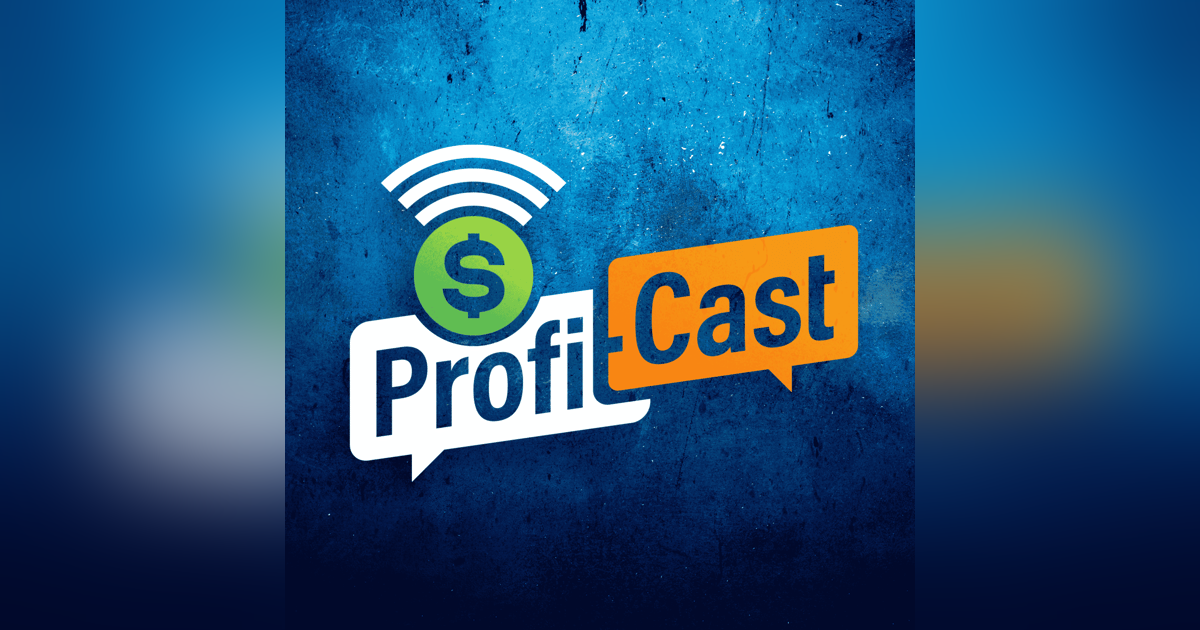73: How to Work for $5,000 Per Hour | Rob Slee


To our American listeners, Happy Thanksgiving! To our non-American listeners, we are so thankful for you and the support you provide simply by listening and participating in the Profitcast community. Thankfulness is a hot topic this week in the...
To our American listeners, Happy Thanksgiving! To our non-American listeners, we are so thankful for you and the support you provide simply by listening and participating in the Profitcast community. Thankfulness is a hot topic this week in the States, and even though Brian has been reminding us to be thankful on a daily basis, because it’s a good and healthy practice, it’s always incredibly meaningful to me when everyone in this country takes an entire day to celebrate being thankful.
Many American movies centered around the holidays like to almost glorify the troubled or comedic nature of family gatherings over Thanksgiving and Christmas. It’s represented as the only times of the year when all the family gets together; when the mom and dad with the five homeschooled kids drive to the East Coast where their kids are subsequently exposed to the wild and unbridled nature of the unsupervised public school children of the 80-hour work week brother and sister-in-law. Chaos ensues, but somehow they manage to come full circle so that a moral conclusion can be had by the 90 minute mark, leaving enough time for non-ironic hilarity to ensue.
But that’s not the thankfulness I celebrate, nor does Brian. Having just returned from Heroes & Villains Fan Fest in San Jose, CA, where I spent a lot of time with Brian and his incredibly awesome wife Sarah, I can say for certain that these two know how to be thankful AND know how to bless.
For a podcast where the host is unashamedly bringing us through a very rollercoaster-like journey in profiting through podcasting, I think it’s important to understand who that host is and why I should trust anything he (or she) says. In my experience with people, there is no way to really trust someone and the advice they give unless you know them. Whether it’s a television show podcast like Brian, Kevin and I do for Arrow or it’s a professional podcast like the one Addy and Brian do for Audiobooks.com, unless you can get to know the hosts a little bit, understand their moral, ethical, economic, and environmental paradigm, it is really difficult to trust advice that is given.
When I read through reviews many listeners leave in iTunes for any sort of podcast, it irks me when someone leaves a comment like, “The host(s) spend too much time talking about their personal lives.” or “I listened for 10 minutes and the host didn’t say anything worthwhile.” This is a total shame. It tells me more about the person leaving the review than the podcast itself, because I already know that this person doesn’t want or need to take the time to understand the context of the podcast.
And that’s why on Profitcast, Brian loves to celebrate the journey. Passion podcasters find themselves quite often on the same journey as small business owners. and to emphasize this point, Brian chats this week with Rob Slee, author of Time Really Is Money: How to Work for $5000 Per Hour. Rob is an entrepreneur of the most envious kind; the guy who has internalized what it means to trim the fat and focus on what matters.
This episode is rich with insight that transcends niche. No matter what line of work you are in, the conversation within applies. As an application developer, myself, I can think of a number of ways Rob’s advice on applying business practices is absolutely relevant to me. Rather than talking about personal application, however, I’d just like to point out three of my favorite moments from the podcast.
ONE. Rob says that he can mathematically prove that 85 percent of private business owners are not creating value in their businesses right now. They’re creating a lifestyle. This totally reminds me of the whole idea that it’s easier to make a habit than break a habit, and that it is our tendency to continue doing something in a certain way because it works. Rob has some great insight as to why this is a total fallacy and a dangerous business model for anyone wanting to grow a business.
TWO. Just by knowing that your time is worth a specific dollar amount, you’ll automatically stop doing the tasks that are not meeting that standard. Rob presents this idea in such a way that it doesn’t sound arrogant to pass on tasks that are “below your pay grade”, but to understand that if you desire to operate at a certain level (and COMPETE at a certain level), you have to stop doing the tasks that prevent you from working on what you should be working on.
THREE.This one is by far my favorite: iterative failure is an investment in success. We have to have a positive relationship with failure because it is going to happen. It’s human nature to try three times and then give up, but it’s the people, the businesses, that continue to re-assess and retry that find success. Overnight successes have years of failure behind them, but those years of failure are obscured by the very nature of failure (being unknown until one is known).
Be encouraged by this week’s episode and take a look at your daily tasks. How can you trim the fat? What systems can you put in place to allow you to spend the time on what you want to do, what you enjoy doing, and what will help you achieve goals? Then report back! Let us know any insight you glean from taking a look at your own model.
Links!























